after credits: this one's for you! (free edition)
A community milestone and a one-off free After Credits edition for you all 🤗
Here's the thing about writing a film & tv newsletter in 2025: Between the endless discourse™ and the takes getting exponentially hotter by the minute, finding space to be genuinely excited about cinema feels like spotting an indie theater in a strip mall of multiplexes.
And yet.
2.2K+ of you have turned That Final Scene into something I never expected.
In 6 months, we’ve actually created a place where we can talk about how:
you are valid if Gladiator 2 entertained you
comparing Scorsese to my therapist isn’t a stretch
the everything-is-connected genre reveals a ridiculous amount about the rise of conspiracy theories
I'm both thrilled and slightly terrified, like Catherine Deneuve watching her reflection multiply in Repulsion. But it’s all thanks to you.
To celebrate this milestone, I’m opening up this edition of After Credits, which is usually reserved for my paid subscribers, to EVERY SINGLE ONE OF YOU.
After Credits is where I handpick films and TV shows for my paid subscribers’ specific moods, from "my boss just made me cry in a Zoom meeting" to "I need something that will make me feel alive without actually having to leave my apartment”.
I also share a special bonus category in the lines of ‘Movies where a fancy house is the main character and it's not having any of your shit’ or ‘True crime docs featuring women who might actually commit crimes if pushed far enough’.
You get it.
And finally, it’s where I share personal thoughts on all things film & tv that candidly, feel safer behind closed doors. But for this time only, let’s open them up…
My Sunday nights used to be sacred The White Lotus territory: wine poured, phone silenced, expectations high. Now I'm folding laundry during episodes, occasionally glancing up to check if Jason Isaacs is still contemplating his lorazepam choices (spoiler: he is).
The decline happened gradually. I started the season dazzled by the cast list, ignoring early warning signs like the distinctly hotel-catalogue aesthetic of the Thailand resort. By episode three, I was texting friends: "Is anything...going to happen?". Episode four broke me enough to voice my frustration online, summoning an army of men telling me to "just wait" and "calm down" with the confident authority of someone explaining my own opinions to me. My favorite was the guy who wrote:
Always a good reminder that internet discourse is unalive and unwell in 2025.
The true offense of season three is watching a talented writer resort to increasingly desperate shock tactics. Why am I watching teenage brothers make out? Does White think I've never seen a flaccid penis or perky boobies before? What on earth was Rockwell doing delivering a monologue (excellent delivery btw, Sammy) about wanting to be an Asian woman that could only have been conceived in White’s villa running on deadline panic and Red Bull? Is the audience supposed to gasp at rich people having identity crises in luxury settings for the third season running? How can someone so bad at their job, I see you my lovely Gaitok, not raise any red flags?
What's even more confusing is trying to figure out what Mike White wants to say anymore. Where's the biting critique of wealth that made previous seasons so satisfying? What about the staff, previously the moral center and narrative engine, who have devolved into vague sketches?
Every time Parker Posey opens her mouth, I glimpse the show this could've been. Her hammy North Carolinian delivery lands the only actual laughs in a series that's allegedly still a comedy. The acting remains stellar across the board. Walton Goggins could read a cereal box and I'd be riveted, Carrie Coon somehow makes her unhinged character compelling, but they're all drowning in narrative blueballs.
So why do I keep watching? Partly because I’m now running a newsletter that’s supposed to have an opinion on zeitgeist-y shows like this. I've written about it, argued about it, and defended it to skeptical friends in the past. Plus, the Substack comments section validated me in Notes. And commiserations are always fun!
But most importantly, as a Reddit user noted, despite its “dissatisfying storytelling”, it’s still a “pleasant weekly Sunday night trip to a beautiful locale with actors I mostly like hanging with for a couple months”. That feels right to me.
And who knows. Maybe the brothers' incest storyline is part of this “larger thematic idea” (the EP’s words, not mine) that will make this all worth it. Or maybe, just maybe, we've entered the phase where Emperor White has no clothes, and we're all too invested to admit it. And that’s okay!
COMFORT ZONE
Look, sometimes you just want the cinematic equivalent of mac and cheese. These picks won't revolutionize your worldview, but they're not trying to.
For when you need a distraction but can't handle plot twists
House of Games (1987): David Mamet's directorial debut follows psychiatrist Margaret Ford (Lindsay Crouse) as she tumbles into a con artist's world to help a patient. What begins as academic curiosity transforms into addictive fascination. The film moves with the confidence of a card shark who knows they've already got your money—deliberate dialogue, meticulously composed shots, and Joe Mantegna's silky-smooth Mike creating a hypnotic rhythm. Perfect for when your brain needs a workout but your body demands horizontal positioning.
Chef (2014): Jon Favreau's food-truck redemption story remains the gold standard of low-stakes, high-reward viewing. The father-son relationship provides just enough emotional weight, while the food porn sequences will have you ordering Cuban sandwiches at midnight. Added bonus: John Leguizamo brings pure joy to every scene he's in.
For when you're too tired to focus but too awake to sleep
Station Eleven (2021): I know recommending post-apocalyptic TV for comfort seems counterintuitive, but trust me. This limited series moves at such a meditative pace and features such beautiful imagery that it becomes almost hypnotic. Plus, Mackenzie Davis gives a performance so lived-in you'll forget you're watching fiction.
Night Moves (1975): As detective Harry Moseby in Arthur Penn's neo-noir, Hackman delivers paranoia and world-weariness in equal measure—a PI who can't solve the mystery of his own obsolescence. His investigation into a teenage runaway leads him through the Florida Keys' sun-drenched deception, where even the gorgeous seaplane shots feel menacing. The film's final image, Hackman's boat circling endlessly, beautifully captures the existential futility of a man who's solved the case but lost himself. The 70s equivalent of doom-scrolling but with better haircuts.
For when you need something on but don't need to pay attention
The Adventures of Priscilla, Queen of the Desert (1994): This Australian road movie is what happens when three drag queens hijack a bus, name it after an unsuspecting Presley, and turn the outback into the world's dustiest runway. Hugo Weaving, Guy Pearce, and Terence Stamp deliver performances so gloriously over-the-top they make Bob The Drag Queen look like an introvert with stage fright. The costumes appear to have been crafted by someone who raided a craft store on acid, had a fever dream about disco balls, then woke up with nothing but hot glue and determination. There's a scene where they perform ABBA atop a moving vehicle because apparently Australia has no traffic laws when it comes to spontaneous lip-syncs. This is for when you need something that respects your half-asleep brain but still offers genuine emotional payoff.
The Righteous Gemstones (2019-): "Gemstones" captures the absurd contradictions of megachurch empire-building with such specific detail it's almost documentary. The fourth season opener abandons the regular cast entirely (!?) for a Civil War flashback starring Bradley Cooper as the family's morally bankrupt patriarch, exactly the kind of swing only a show at peak confidence would attempt. The show's secret weapon is Edi Patterson as middle child Judy, delivering improvised monologues so unhinged you'll rewind three times wondering if you actually heard what you think you heard. Spoiler: you did, and it was worse than you remember. Ideal for those nights when only watching terrible people implode spectacularly will satisfy your darkest impulses.
BRAIN FOOD
These aren't exactly "eat your vegetables" films/tv shows/docs, but they might make you pause Netflix to stare at the wall for a few minutes. In a good way.
For when you want to think without having an existential crisis
Enlightened (2011-2013): Mike White was making uncomfortable television long before rich people went to Thailand. This HBO series starring Laura Dern as Amy Jellicoe—a corporate executive who returns from rehab with inconvenient new ideals—was ruthlessly canceled after two perfect seasons. Amy's determination to expose corporate wrongdoing while navigating her own messy psychology makes for television that's simultaneously cringe-inducing and deeply moving. Molly Shannon's brief role as a lonely executive will break your heart in ways Ted Lasso could never.
F For Fake (1973): Orson Welles' final completed film isn't quite documentary, isn't quite fiction, but is completely hypnotic. Ostensibly about art forger Elmyr de Hory and his biographer Clifford Irving (who himself became infamous for faking Howard Hughes' autobiography), the film morphs into Welles' personal essay on authenticity, expertise, and the slippery nature of truth. Oja Kodar—Welles' collaborator and partner—struts through European streets in a miniskirt as men gawk, while Welles performs magic tricks in a cape. It's cinema as sleight-of-hand, with Welles as the mischievous magician showing how easily we're all fooled.
Know someone in your life who loves film & tv? Want to make them feel special? Sorting out their monthly watchlist would do the trick 💝
For when you want arthouse but make it accessible
Talk To Me (2022): The Philippou brothers made the jump from YouTube to feature films look effortless with this Australian horror gem. It takes the tired possession trope and reinvents it through the lens of grief, social media performance, and teenage belonging. Sophie Wilde delivers one of the most physically committed horror performances in recent memory.
Pariah (2011): Dee Rees' debut feature about Alike, a 17-year-old Black lesbian discovering her identity in Brooklyn, accomplishes more in 86 minutes than most directors manage in entire careers. Bradford Young's cinematography bathes nightclub scenes in purples and pinks while family confrontations play out in sickly greens and yellows. Adepero Oduye's performance as Alike navigates microaggressions and first love with such specificity that you'll forget you're watching fiction. The film's poetry motif adds another layer, with Alike's verses serving as emotional waypoints in her journey.
For when you want to feel something but don't know what
Adolescence (2025): I've been waiting for someone to tackle this subject since I watched thirteen-year-old boys in my TikTok feed quoting Andrew Tate. Netflix's four-part drama—each episode filmed in a single take—is that rare piece of television that left me sitting in silence for a full thirty minutes after the credits rolled. Stephen Graham and Jack Thorne have created something so raw that several men in my life texted me variations of "I need to talk about this show" after watching. At its center is fifteen-year-old newcomer Owen Cooper, whose debut performance should be impossible for someone with no prior acting experience. The show refuses easy explanations or convenient blame-shifting for its central tragedy, instead making us sit uncomfortably with questions about what we're teaching boys and how we expect them to navigate an increasingly toxic landscape. I finished it a week ago and still catch myself staring into space thinking about it. This is the kind of drama that changes conversations, not just about television, but about how we're raising the next generation.
Far From Heaven (2002): Todd Haynes' Douglas Sirk pastiche uses 1950s melodrama aesthetics to excavate the repression beneath postwar American prosperity. Julianne Moore plays Cathy Whitaker, a Connecticut housewife whose perfect life unravels when she discovers her husband's homosexuality and develops feelings for her gardener. Elmer Bernstein's score swells with emotional excess while Edward Lachman's cinematography captures autumn leaves in hyperreal Technicolor saturation. Moore's performance—a master class in containing volcanic emotion beneath social niceties—culminates in a train station goodbye that destroys me every single time.
WILDCARD
These picks are weird, wonderful, and probably not what you were looking for, but might be exactly what you need.
For when real life feels stranger than fiction
Perfect Wife: The Mysterious Disappearance of Sherri Papini (2024): In 2016, California "supermom" Sherri Papini vanished during a jog, leaving behind only her phone with earbuds still attached. The first episode follows the standard missing-white-woman playbook—weeping family members, concerned neighbors, and police eyeing the husband while volunteers comb the woods. But Papini's tale takes a sharp turn when she reappears weeks later with mysterious injuries and a wild story about her captors. I won't spoil what follows (though you could Google it), but let's just say the series gradually unveils layers of deception that make Amy Dunne look like an amateur. The most riveting moments come from Keith Papini's police interviews. Is he in on it? Is he just weird? The truth, when it finally emerges, is stranger than any screenwriter would dare pitch.
Shirkers (2018): Sandi Tan's documentary about her lost film feels like cinematic true crime where the victim is creativity itself. In 1992, Tan and her friends shot Singapore's would-be first indie road movie, only for their American mentor to disappear with all the footage. Twenty years later, the film mysteriously resurfaces (minus the sound), launching Tan on a quest to understand what happened. The recovered footage—vibrant, surreal, distinctly 90s—feels like watching a ghost, while the present-day investigation unpacks how one man's betrayal shaped the trajectories of several young women's lives.
For when you need reminding that chaos is normal
Barb And Star Go To Vista Del Mar (2021): This technicolor acid trip masquerading as a buddy comedy features Kristen Wiig and Annie Mumolo as middle-aged Midwesterners unleashed on a Florida resort town. Their shared vocabulary—including extensive backstories for imaginary women they've just invented—creates a surrealist bubble where Jamie Dornan singing about seagulls on a beach somehow makes perfect emotional sense. It's like if your blender gained sentience, watched 300 hours of QVC, then decided to make a movie about friendship. The culottes-centric musical number alone justifies its existence in a world that desperately needs more movies where women over 40 have fun without learning important lessons.
The Comeback (2005/2014): Lisa Kudrow and Michael Patrick King's HBO series about washed-up sitcom actress Valerie Cherish attempting career resurrection via reality TV was so ahead of its time in 2005 that it died after one season. Its 2014 revival—where Valerie stars in an HBO drama based on her reality show humiliation—completed one of television's most brutal circular narratives. Watching Kudrow's Valerie desperately maintain her "I'm okay!" facade while being professionally degraded creates a viewing experience that's simultaneously hilarious and traumatic. RuPaul's Drag Race should send royalty checks for building an empire on Valerie's "I don't want to see that!"
For when you want to watch the world burn (safely)
Forgotten (2017): This South Korean psychological thriller follows Jin-seok as he investigates his brother's strange behavior after returning from an apparent kidnapping. Director Jang Hang-jun constructs a puzzle box narrative where memory itself becomes suspect. Just when you think you've figured out the twist, the film reveals you've been watching an entirely different story. The final act transforms from family drama to something so dark you'll need to double-check your locks afterward. Manages to make the suburban Korean house as terrifying as any haunted mansion.
The Square (2017): Ruben Östlund's Palme d'Or-winning evisceration of the art world features the single most uncomfortable dinner scene in cinema history, where Terry Notary's performance artist takes his ape-man routine so far beyond acceptable boundaries that you'll never attend another gallery opening without checking the emergency exits. Christian (Claes Bang), a handsome museum curator, watches his life unravel after his phone is stolen, which spirals into a series of increasingly absurd confrontations with everything from his own privilege to a condom he refuses to dispose of properly. Elisabeth Moss shows up for three scenes that should be studied in acting classes until the end of time, particularly her post-coital tug-of-war over a used prophylactic that says more about power dynamics than most feminist theory textbooks.
THIS MONTH'S BONUS
Movies where I would 100% join the cult they're warning me about
Martha Marcy May Marlene (2011): Elizabeth Olsen breathes like someone who's forgotten how as she navigates post-cult life. Sean Durkin's fractured timeline makes trauma feel not like before-and-after but a constant haunting. The film's most disturbing revelation isn't the violence but how much sense community makes when the alternative is Sarah Paulson's hollow bourgeois existence with its obligatory lake house and emotional constipation.
Holy Smoke (1999): Jane Campion's Holy Smoke understands that spiritual awakening and sexual awakening are conjoined twins dressed in different outfits. Kate Winslet's Ruth joins an Indian ashram and returns to Australia supposedly brainwashed, only for her family to hire Harvey Keitel's "exit counselor" to deprogram her. What follows is less cult deprogramming and more erotic power struggle staged against Australia's outback—a landscape as psychologically unforgiving as the characters inhabiting it. 25 years later and men are still joining Jordan Peterson's cult for the same reasons Keitel falls for Winslet: the desperate hope that someone, anyone, might explain why existence hurts so much.
Sound of My Voice (2011): Brit Marling plays a cult leader who might be from the future or might be full of shit. The basement meetings with elaborate handshakes and white cotton uniforms tap into our exhaustion with choosing outfits and social scripts. I've watched it four times and still don't know if she's a fraud, which probably means I'd be one of the first to drink whatever she's serving.
The Other Lamb (2020): I watched this during a breakup and couldn't tell if I was disturbed by the cult's isolationism or envious of their wool-draped sisterhood. Szumowska films misogyny like a high-fashion editorial – all ethereal lighting and haunting tableaus where the women's braided hair becomes both noose and identity. When Raffey Cassidy discovers her power through menstruation (the thing making her "unclean"), it hit me like a truck: sometimes your perceived weakness is actually your escape route.
Aaaand that’s a wrap for After Credits. You know this could be us every month 🥹
Upgrade your subscription and even save 18% with an annual plan. What a bargain! Your future self will thank you the next time someone asks, "Seen anything good lately?"


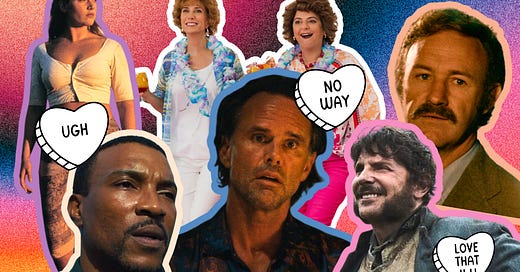



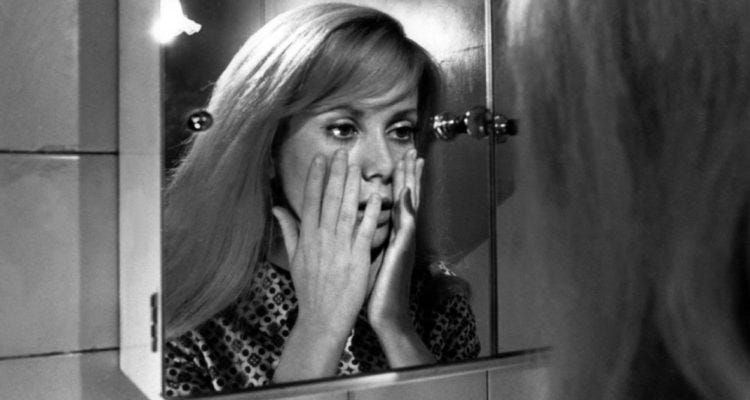
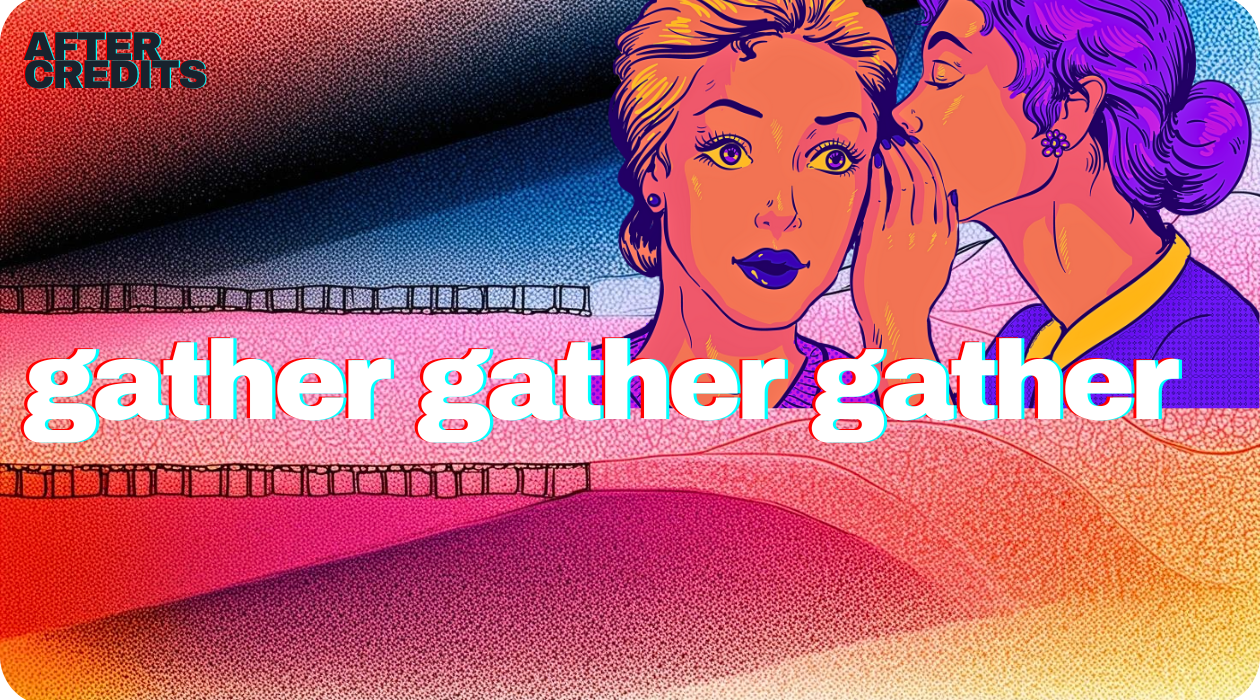

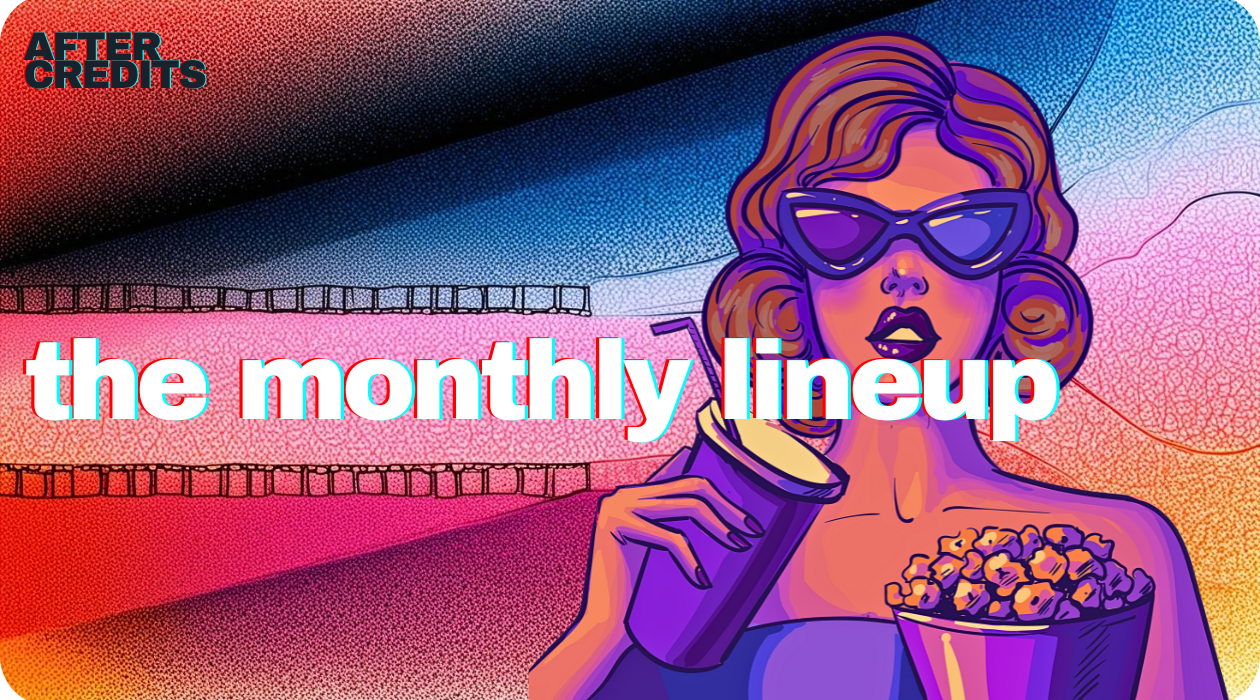
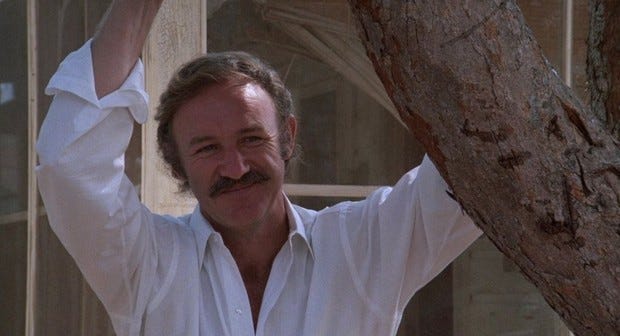
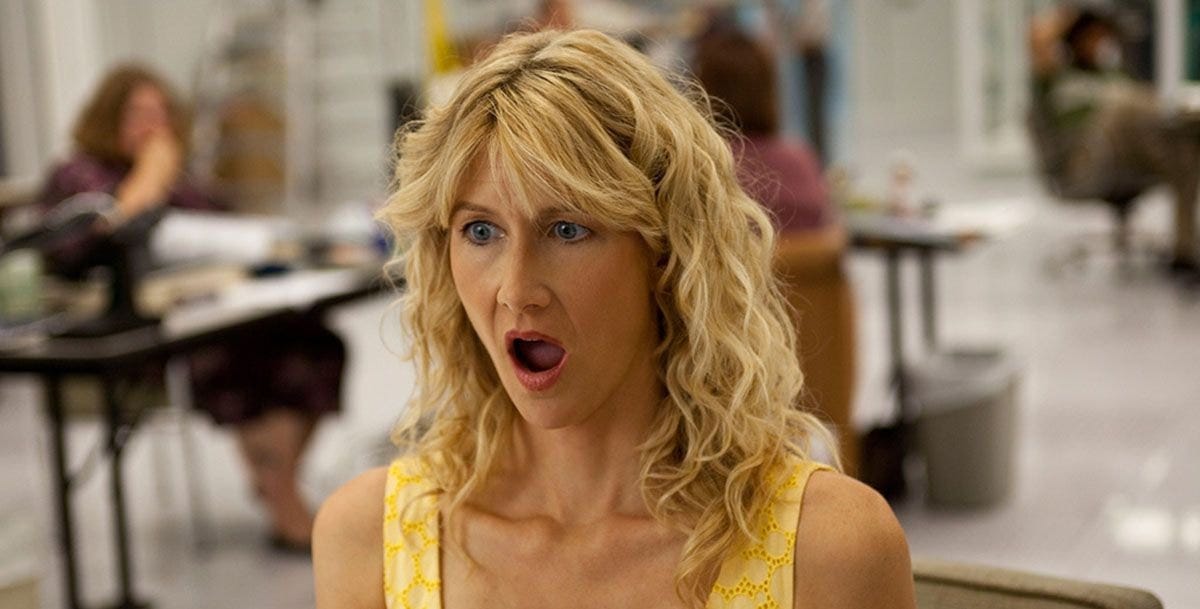
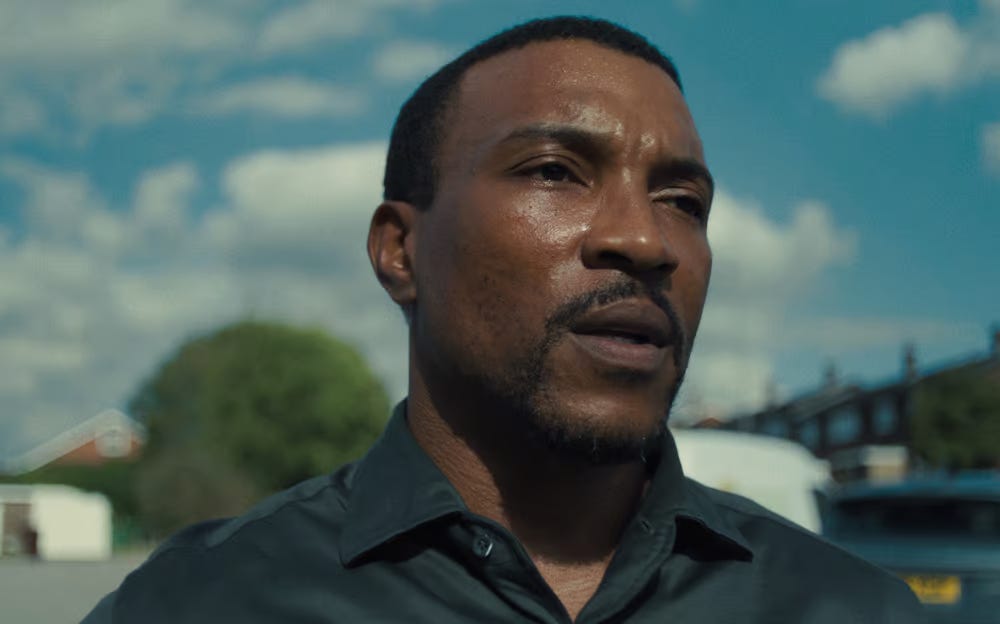
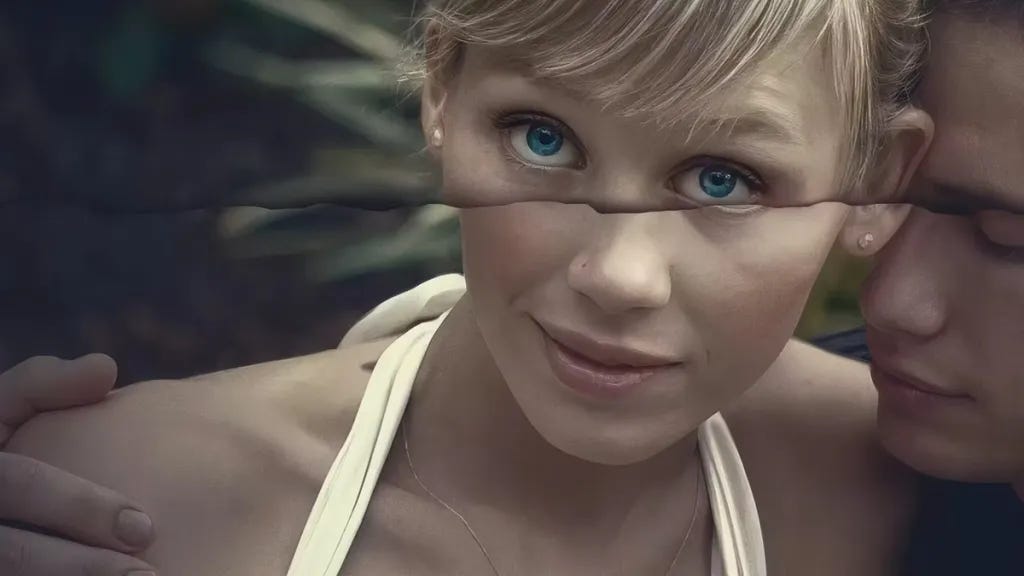
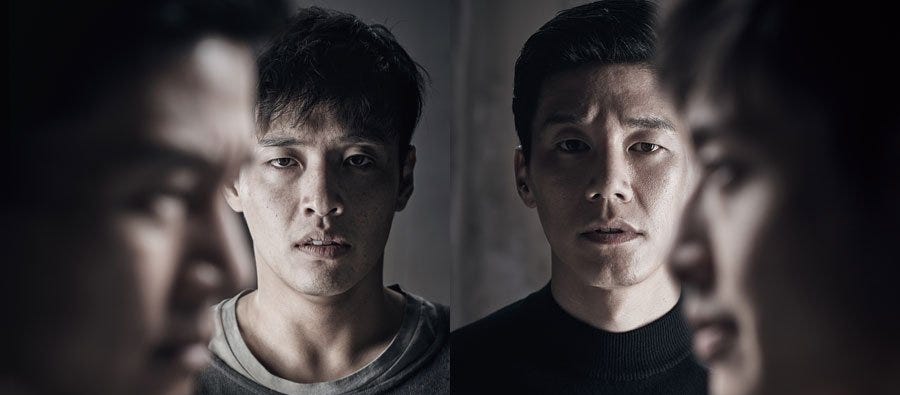
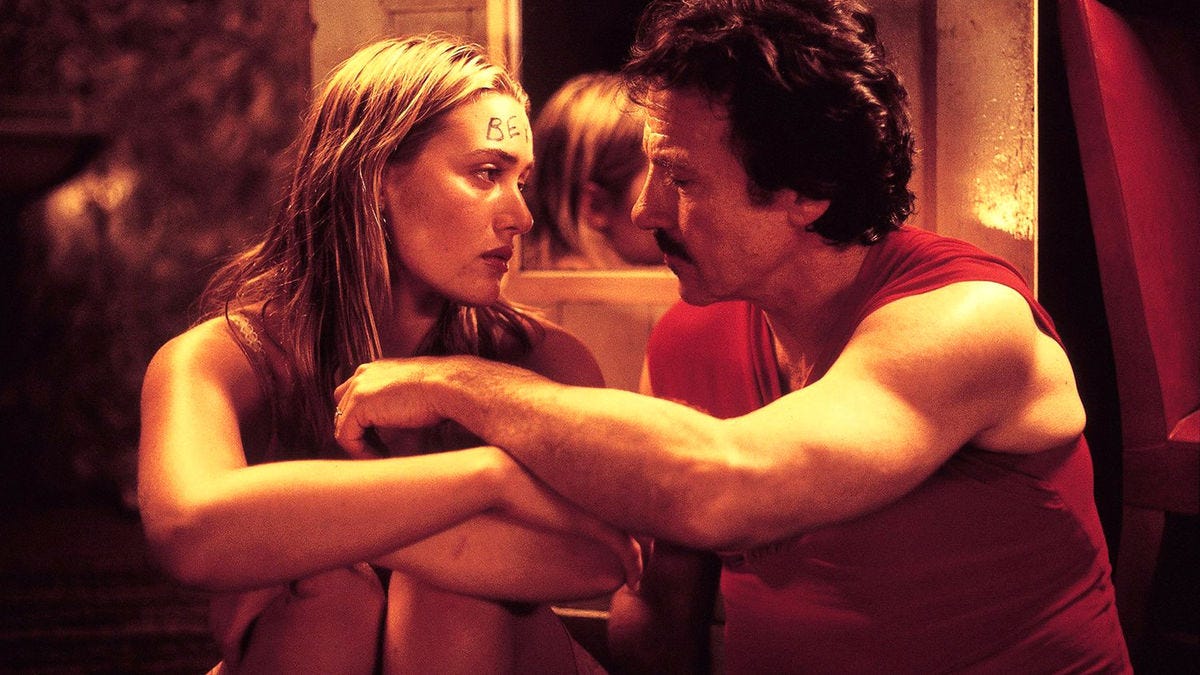
So happy I opened this up! You nailed my feelings about White Lotus. Also, as my wife says, “It’s a who done it, that’s why we keep watching despite the eewww factor.”
Just shoot me! Never liked white Lotus, just because everyone told me I should do not think it was smart or funny just kind of creepy and sad actually.